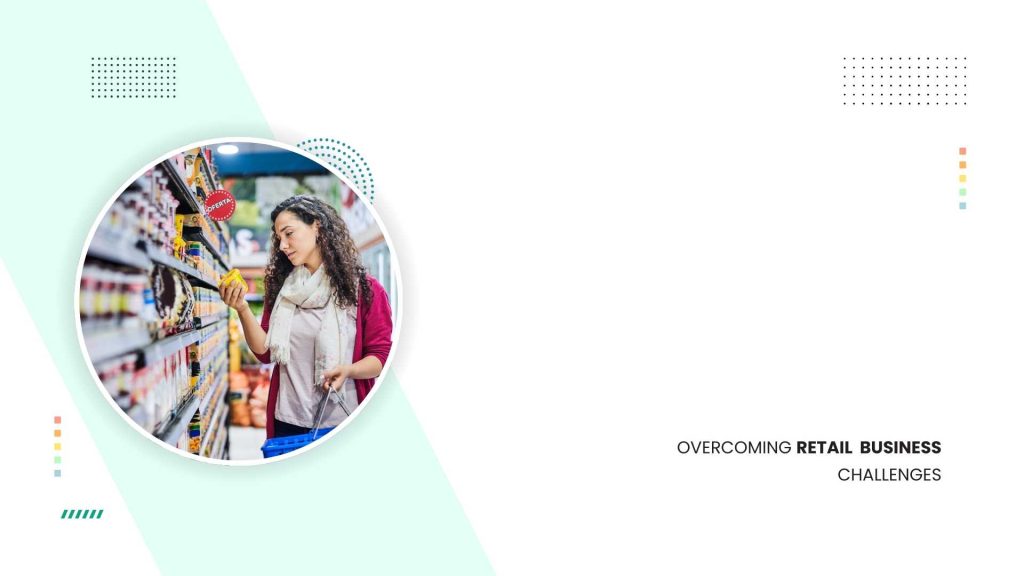The retail landscape is dynamic, constantly shifting with evolving consumer preferences, technological advancements, and market trends. As we enter 2024, the industry faces many challenges, demanding innovative solutions and strategic adaptations for sustainable growth. Let’s delve into the key hurdles retailers encounter and how embracing ERP solutions can help overcome these obstacles.
Challenges in Retail Businesses
Operational Inefficiencies:
Inefficient processes and outdated systems can hinder operational performance, leading to delays, errors, and increased costs. Retailers need streamlined operations to enhance productivity, reduce wastage, and improve overall efficiency across their business operations.
Rapidly Evolving Consumer Preferences:
Today’s Consumers are more demanding than ever. Their preferences evolve quickly, driven by changing lifestyles and emerging trends. Retailers need to respond promptly to market changes.
Inventory Management Complexities:
Effective inventory control is important for retail businesses to meet consumer demands while minimizing costs and optimizing resources. However, managing inventory across multiple channels and locations can be complex and challenging, leading to stock outs, overstocking, and inefficiencies in supply chain management.
Intense Competition Both Online & Offline:
With the rise of e-commerce giants and the proliferation of online shopping platforms, retailers face fierce competition. Standing out amidst this competition requires a strategic approach that enhances brand identity, customer engagement, and overall shopping experience.
Market Trends:
Staying ahead of current market trends and consumer behavior is essential for retailers to anticipate demand, identify growth opportunities, and remain competitive. However, gathering and analyzing relevant real-time data can only be daunting with the right tools and technologies.
Best practices in the retail industry
Customer Experience Enhancement:
In today’s competitive retail landscape, providing exceptional customer experiences is crucial for success. This involves creating a seamless shopping journey across various touchpoints, such as online, mobile, and in-store. Retailers can achieve this by personalizing interactions, offering convenient payment options, and providing efficient customer service.
Data-Driven Decision Making:
Data analytics can significantly impact a retailer’s operations, from inventory management to marketing strategies. By collecting and analyzing customer data, purchasing patterns, and market trends, retailers can make efficient decisions to optimize product offerings, pricing strategies, and promotional campaigns.
Omnichannel Retailing:
Embracing an omnichannel approach allows retailers to provide a shopping experience across multiple channels, including online platforms, mobile apps, social media, and more. By integrating these channels and offering features such as click-and-collect, in-store pickup, and synchronized inventory management, retailers can cater to modern consumers’ diverse preferences and behaviors.
How ERP Can Transform Retail Operations:
Connect All Facets of Your Business:
ERP solutions integrate various aspects of retail operations, including sales, inventory control, finance, and CRM. By centralizing data and processes, retailers gain a comprehensive view of their business, enabling better decision-making and improved collaboration across departments.
Streamline Operations:
ERP streamlines core business processes, automates repetitive tasks, and eliminates silos between departments. ERP optimizes workflows, from procurement and order fulfillment to invoicing and financial reporting, reducing manual errors and enhancing operational efficiency.
Agile Adaptation:
ERP systems provide real-time visibility into key metrics and performance indicators, empowering retailers to respond swiftly to market trends. Retailers can adapt quickly to evolving market dynamics and consumer demands by adjusting inventory levels, launching new marketing campaigns, or optimizing pricing strategies.
Personalized Customer Experiences:
With customer data and insights access, ERP enables retailers to deliver customized experiences tailored to individual preferences and behaviors. By leveraging data analytics and CRM functionalities, retailers can anticipate customer needs, segment their target audience, and offer targeted promotions and recommendations.
Business Scalability:
As retailers expand their operations or enter new markets, scalability becomes critical for success. ERP solutions are designed to grow with the business, offering scalability and flexibility to accommodate changing needs and business requirements.
Conclusion:
Ready to supercharge your retail business and conquer the challenges of 2024? Embrace the power of Acumatica Cloud ERP to unlock new possibilities for business growth, efficiency, and customer satisfaction.
With a comprehensive ERP platform, you can transform your retail operations, streamline processes, and stay ahead of the competition in today’s dynamic marketplace. Explore our Acumatica ERP solutions today and embark on a journey toward retail excellence!

Vijay comes with a vast experience in ERP and enterprise solutions space with about 20 years of experience in various packaged application like Acumatica, SAP, Orion, Salesforce.com, SugarCRM and, SalesLogix.

